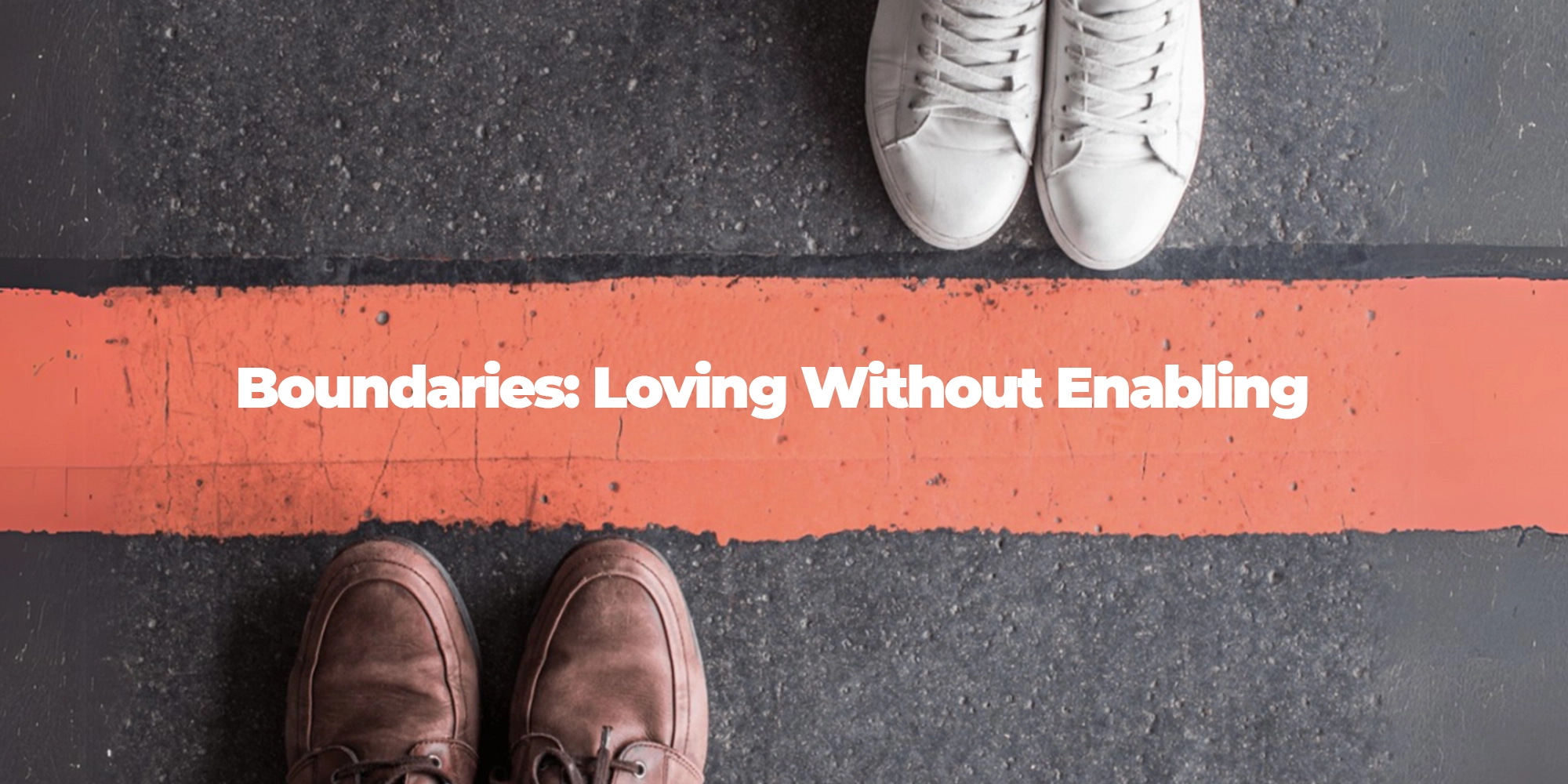
Boundaries — Loving Without Enabling
If there’s one word we hear most from families affected by addiction, it’s this one: boundaries. It’s the word we cling to, wrestle with, and circle back to again and again.
It’s essential—but it’s also one of the hardest concepts to understand, and even harder to practice consistently.
Without healthy boundaries, we often find ourselves depleted, resentful, and unsure where we end and someone else begins.
Let’s bring some clarity to the chaos.
When Resentment is a Messenger
Resentment is often a flashing neon sign that a boundary is being crossed. But the signs aren’t always obvious.
You may feel frustrated with someone, but you don’t want to “cut them off” because you love them. Maybe they don’t ask you for money, but they trash your space and ignore your rules. Maybe they constantly rely on you for rides, favors, and emotional energy, but always wrap it in polite conversation or superficial care. Or perhaps your ex is verbally demeaning, but faithfully pays child support and shows up for your child.
These gray areas are where boundary work gets murky—and deeply personal.
Build Your Fence: The 7 Types of Boundaries
Picture your life like a yard, surrounded by a seven-sided fence (yes, seven—go with it). Each side represents a different type of boundary: conversational, physical, time, mental, emotional, material, internal.
Now ask yourself:
Where is the gate always swinging open?
Where do you feel stretched thin or compromised?
Where are panels broken, leaving you vulnerable or unprotected?
Try This Exercise:
- Grab a piece of paper and sketch out your seven-sided fence.
• Label each side with one of the categories above.
• Identify where the breaches are happening in your life.
Now, start practicing your reinforcement tools—phrases that help you hold the line without shame or guilt:
• “Let me think about that and get back to you.”
• “I need to say no for my own well-being.”
• “I don‘t have the bandwidth for this right now. Let’s talk another time.”
• “No, I‘m not giving you money.”
• “No, you can’t borrow that. It often comes back damaged.”
Healthy boundaries aren’t walls to shut people out—they’re fences to protect what’s sacred within you. Start small. Stay consistent. And remember: every time you set a boundary, you’re saying yes to your own healing.

